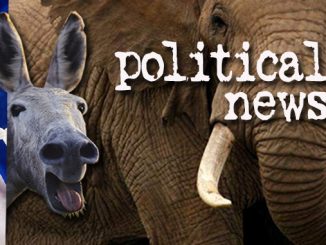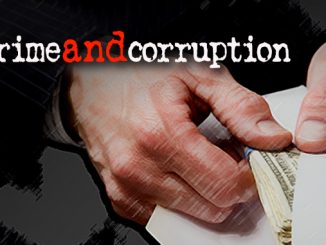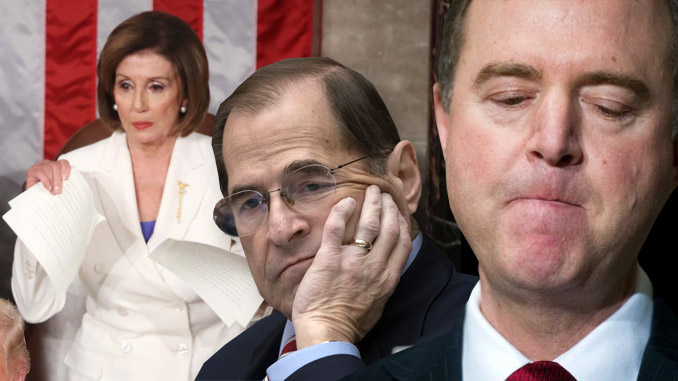
Claims that Ukraine is “vital to U.S. national security” are not true.
By Philip Giraldi
In the world of business there is an expression for having so much regard for the interests of a client that one loses sight of the actual bottom line and causes one’s own company to suffer losses. It is called “clientitis.” In the federal government there is a similar phenomenon frequently observed in officers who serve for years overseas, particularly with the Department of State and U.S. AID. It is often referred to in a more vernacular fashion as “going native.” It is a shorthand expression for a diplomat who is so immersed in the foreign culture and politics that he or she tends to become protective of the host country’s needs, identifying more with the locals in the nation where one serves than with the actual interests of the United States.
The U.S. diplomat is, of course, serving in a foreign country at great cost to the taxpayer to support American interests, not to become either a friend or promoter of the local government and people. That is not to suggest that an ambassador should not strive to have a friendly relationship with the country in which he or she serves. A good ambassador should be a communicator, and it is essential that he or she work to facilitate open lines of communication for dealing with bilateral problems.
All of that said, the Trump and Obama administrations seem to have had particular difficulties in establishing the proper tone for an overseas embassy and have also selected a whole series of ambassadors and chiefs of mission who have inappropriately either been advocates or adversaries of their host countries. One need only point to the examples of Michael McFaul and Robert Ford under Obama, backed up by the unspeakable Samantha Powers and Susan Rice back in Washington and, under Trump, Richard Grenell and David Friedman supported by Secretary of State Mike Pompeo.
The Obama era 2010 appointment of McFaul, a Stanford academic and Russia expert, as ambassador was intended to “reset” the bilateral relationship while also pushing the democracy-promotion agenda and confronting various aspects of the domestic policies of the Vladimir Putin government that were considered unacceptable, to include the treatment of homosexuals. Pursuing that end, McFaul made a point of meeting with the political opposition in Russia. He thereby antagonized the officials in the government that he should have been working with, and his term of office was an embarrassing failure.
The drive to “get” Syria has remained a constant in American foreign policy to this day. In 2010, when the U.S. still had an embassy in Damascus, President Barack Obama maladroitly sent Ford to be the U.S. ambassador there. Ford actively supported the large demonstrations by anti-regime Syrians inspired by the Arab Spring who were opposed to the al Assad government, and he might even have openly advocated an armed uprising, a bizarre interpretation of what ambassadors are supposed to do in a foreign country. He once stated absurdly that if the U.S. had armed opponents of the regime, al Qaeda groups would have been “unable to compete.” Ford was recalled a year later, after being pelted by tomatoes and eggs, over concerns that his remaining in country might not be safe, but the damage had been done and normal diplomatic relations between Damascus and Washington have never been restored.
Trump has also scored poorly with his overwhelming slate of appointed rather than professional ambassadors, to include the ghastly Grenell in Germany. Grenell, a non-German speaking protégé of National Security Adviser John Bolton would seem to have enough on his plate defending the unpopular Trump administration decisions on climate change, the Iran nuclear deal, and on tariffs directed against European Union exports, but he has apparently gone out of his way to make the bilateral relationship with a key ally even worse. After the White House withdrew from the Iran agreement, Grenell tweeted that German businesses should “wind down operations immediately” in Iran. The ineptly worded advice was inevitably taken by the Germans as a threat.
Nils Schmid, a German Social Democratic Party foreign policy spokesman, goes so far as to say, “He does not understand what the role of an ambassador should be. An ambassador is a bridge-builder who explains how American politics works, how the American government works, and at the same time explains to America how Germany sees things.” Grenell has, however, “defined his role for himself, and it is not the traditional role of an ambassador. . . . He will work as a propagandist [for Donald Trump].”
And one must not forget the Israeli apologist Friedman now sitting fat and happy as American ambassador in Jerusalem. Friedman, a former Trump lawyer with no diplomatic experience, represents the Israeli government more than that of the United States. He recently told journalists to “shut their mouths” when they dared to criticize the Israeli slaughter of Palestinians in Gaza.
It is interesting to note, however, that beyond personal agendas, the impeachment process has exposed that many of the diplomats and national security advisers are themselves part of what one might describe as the Deep State, dedicated to a globalist view of the world and the place of the United States in it as something like a global rules maker and enforcer.
The most recent instance of the “going native” disease comes from Ambassador William Taylor, who served in Ukraine. Recently Taylor penned an article for The New York Times entitled “Yes, Secretary Pompeo, Americans should care about Ukraine.” He explains why: “Here’s why the answer should be yes: Ukraine is defending itself and the West against Russian attack. If Ukraine succeeds, we succeed. The relationship between the United States and Ukraine is key to our national security, and Americans should care about Ukraine. Russia is fighting a hybrid war against Ukraine, Europe, and the United States. This war has many components: armed military aggression, energy supply, cyber attacks, disinformation, and election interference. On each of these battlegrounds, Ukraine is the front line.”
One notes immediately that Taylor’s grossly overblown premise that Ukraine is defending the West against a hostile Russia is meaningless blather. Ukraine is pursuing its own interests, which have nothing to do with protecting housewives in Levittown, U.S.A. Russia is doing the same for its part, and the conflict resulting is both regional and containable, not a prelude to World War III.
The claim that Ukraine is “key to our national security” is also hogwash, almost a joke in terms of its extreme exaggeration. Taylor concludes, “To support Ukraine is to support a rules-based international order that enabled major powers in Europe to avoid war for seven decades. It is to support democracy over autocracy. It is to support freedom over unfreedom. Most Americans do,” which Daniel Larison correctly describes as a “catchy slogan . . . but a lousy political argument.”
The bottom line is that Taylor is promoting the same agenda that surfaced in the impeachment hearings from Lt. Col. Alexander Vindman and Fiona Hill, i.e., that Russia is the enemy of the United States and we must arm “friends” to fight them, or, as Rep. Adam Schiff (D-Calif.) put it, to “fight them over there so we won’t have to fight them over here.” That is also essentially the Deep State agenda, which is based on constant conflict.
The prepared opening statement in the hearings by Vindman, described as the top Ukraine expert on the National Security Council (NSC), provided some insights into how foreign policy decisions often are not interests-based. Vindman, a fluent Ukrainian and Russian speaker, was born in Ukraine but emigrated to the United States with his family at age three. He was commissioned as an army infantry officer in 1998 and served in some capacity in Iraq from 2004-05, where he was wounded by a roadside bomb and received a purple heart.
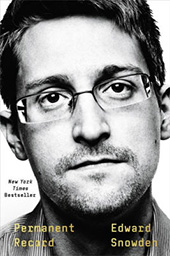
Vindman was concerned that the risky policy of arming Ukraine was not proceeding quickly enough to suit him. He was troubled because he “became aware of outside influencers promoting a false narrative of Ukraine inconsistent with the consensus views of the interagency. This narrative was harmful to U.S. government policy. While my interagency colleagues and I were becoming increasingly optimistic on Ukraine’s prospects, this alternative narrative undermined U.S. government efforts to expand cooperation with Ukraine.”
In other words, a far from objective Vindman was not interested in alternative views on the Russia-Ukraine conflict and was instead promoting a “corporate view” held by him and his associates. He was presumably supportive of Obama’s plan to overthrow the legitimate government of Ukraine in 2014 because it was considered to be too close to Moscow. The regime change was brought about by “mavericks” like the foulmouthed neocon State Department officer Victoria Nuland and the footloose warmonger Sen. John McCain (R-Ariz.). Vice President Joe Biden also appeared on the scene after the “wetwork” was done, with his corrupt son Hunter trailing behind him. Since that time, Ukraine has had a succession of increasingly corrupt puppet governments propped up by billions in foreign aid. It is now per capita the poorest country in Europe.
Note the following additional excerpt from Vindman’s prepared statement: “I was worried about the implications for the U.S. government’s support of Ukraine. . . . I realized that if Ukraine pursued an investigation into the Bidens and Burisma, it would likely be interpreted as a partisan play which would undoubtedly result in Ukraine losing the bipartisan support it has thus far maintained.”
So corruption at the top level of the U.S. government is okay as long as it does not interfere with the broader agenda of fighting Russia. Vindman’s concern was all about Ukraine without any explanation of why the United States would benefit from bilking the taxpayer to support a foreign deadbeat one more time and he repeated the line also used by Taylor that “a strong and independent Ukraine is critical to U.S. national security interests because Ukraine is a frontline state and a bulwark against Russian aggression.”
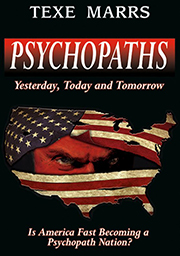
Trump’s Russia “expert” Fiona Hill supported Vindman on Ukraine and was equally scathing about Russia when it was her turn to testify at the impeachment hearings. She said, “right now” Russia is preparing to interfere in the 2020 presidential election and that “we are running out of time to stop them.” She provided no evidence to support her claim.
The Deep State thinking that has promoted neoliberal and neoconservative interventionism has brought much grief to the United States over the past 20 years, but it has increasingly been empowered by the type of thinking at the top of government that cannot distinguish between real interests and contrivances created to serve certain special interests. Combine that with a tendency to “go native” on the part of foreign policy experts and one winds up with a conventional thinking process that has produced foreign policy failure after failure and will continue to do so for the foreseeable future.
Philip Giraldi is a former CIA counter-terrorism specialist and military intelligence officer and a columnist and television commentator. He is also the executive director of the Council for the National Interest. His other articles appear on the website of “The Unz Review.”




